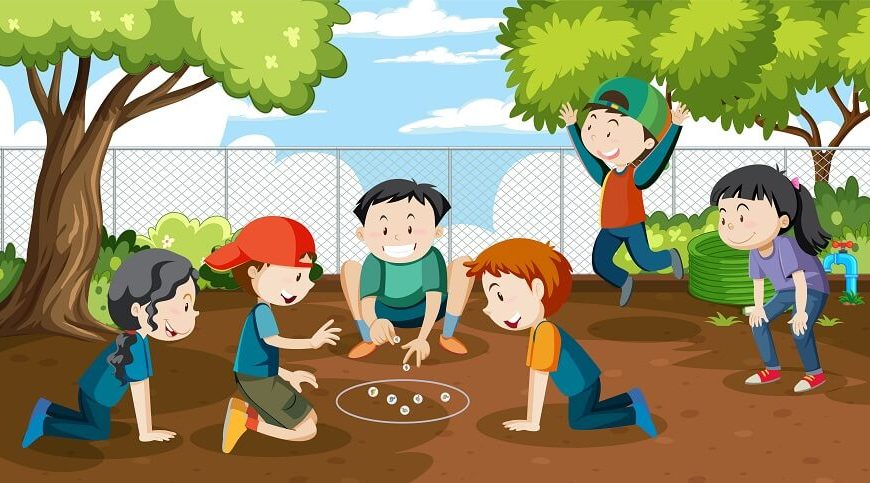The Importance of Taking Turns
Imagine a scenario where a playdate between your toddler and their friends quickly escalates into a cacophony of wails and tears. The toy car, once a source of joy, has become the centre of a battlefield because each child insists on playing with it ‘right now’. This scene, quite familiar to parents and educators alike, underlines an essential developmental lesson for children – the art of taking turns. This crucial yet often overlooked aspect of child growth forms the focus of this piece as we unravel the significance of taking turns and suggest a plethora of turn-taking and waiting activities for preschoolers and toddlers.
Why Is Taking Turns So Important?
Taking turns isn’t just about playing games. It’s a foundational skill that forms the bedrock for the broader development of a child’s social, cognitive, and emotional well-being.
At its core, taking turns is an early lesson in empathy. It teaches children that others also have wants and needs similar to their own. It’s a first step toward understanding fairness, justice, and the essential value of sharing. In other words, taking turns helps them become better, empathetic individuals.
On a cognitive level, turn-taking introduces concepts of structure, order, and patience. The idea of waiting for their turn makes children realise that the world does not always work instantaneously according to their demands. They learn that delayed gratification can be rewarding. This is a crucial lesson in the age of instant gratification, which can set unrealistic expectations for young minds.
Turn-taking also aids in communication development. In conversation, for example, we take turns talking and listening. Practising turn-taking can improve children’s communication skills and listening skills, promoting more effective and harmonious interactions with others.
Different Types Of Turn Taking
Turn-taking activities for toddlers are not just about sharing toys or waiting for one’s turn on the swing. It manifests in various forms:
Conversational Turn-Taking
This involves learning to listen when someone else is speaking and understanding the appropriate time to respond. It establishes the foundation for effective communication and fosters active listening skills.
Game-Based Turn-Taking
This type of turn-taking is common in board games and sports, where each player waits for their turn. It teaches patience, strategic thinking, and the ability to follow rules.
Social Interaction Turn-Taking
This encompasses broader social settings like waiting in line at the grocery store, or patiently waiting for their meal at a restaurant. It helps children navigate social norms, practice self-control, and respect others’ space.
Activities to Foster Turn-Taking
Now, let’s explore some effective turn-taking and waiting activities for preschoolers and toddlers that can help incorporate this valuable skill into their daily lives.
Board Games and Puzzles
Nothing beats the traditional method of board games and puzzles to instil turn-taking. Board games like ‘Candy Land’ or ‘Chutes and Ladders’ are excellent choices for preschoolers. They not only teach the concept of taking turns but also introduce numeracy skills. For toddlers, simple puzzles can be a fun group activity where each child adds one piece at a time, practising patience and cooperation.
Passing the Ball
One of the easiest and most enjoyable turn-taking activities for toddlers is passing the ball. As simple as it may seem, it reinforces the concept of waiting, taking turns, and being part of a group. It’s also a fantastic physical activity that enhances motor skills and coordination.
Storytelling Sessions
Reading stories to children is an intimate and educational experience. But why not turn it into a turn-taking activity? You can read a sentence or a page, then let your child read the next, or even just point at the pictures. This fosters not only turn-taking but also language and literacy development. It encourages children to actively participate in the storytelling process and take turns engaging with the narrative.
Cooking/Baking Together
Cooking or baking together is a delightful and engaging way to teach turn-taking. You can allow your child to add ingredients one by one, stir the mixture, or decorate cookies. It’s a practical, hands-on experience that teaches not just turn-taking but also early maths and science concepts. It reinforces the importance of following steps, cooperating, and waiting for the final product.
Reasons Why Preschoolers May Struggle With Taking Turns
Young children, particularly preschoolers, may find turn-taking challenging for several reasons:
Cognitive Developmental Stage
Preschoolers are still at a developmental stage where they are egocentric, making it hard for them to understand others’ needs. They may struggle with the idea that everyone should have a chance to play or use a toy.
Impulse Control
At this age, impulse control is still developing, making waiting and patience a considerable challenge. They may feel a strong desire to have immediate gratification, leading to difficulties in taking turns.
Lack of Practice
If children are not regularly engaged in turn-taking activities, they may lack the necessary practice to master this skill. Consistent exposure to turn-taking situations helps children become more familiar with the concept and develop their ability to wait and take turns.
Waiting Activities to Reinforce Patience
Waiting is an integral part of turn-taking, and it’s essential to practise patience. Here are a few waiting activities for preschoolers:
Simon Says
This classic game teaches children to wait and pay attention. They have to wait for the correct command to perform the action, promoting patience and attentiveness. Simon Says provides an opportunity for children to practise self-control and follow instructions while waiting for their turn to act.
Red Light, Green Light
Another classic, this game not only fosters the concept of waiting but also teaches children about safety rules. They have to wait for the “green light” signal to move forward and stop when the “red light” is given. Red Light, Green Light promotes self-regulation, listening skills, and patience.
Planting Seeds
Planting seeds and waiting for them to grow is a tangible and rewarding experience. It teaches children that some things can’t be hurried, instilling a sense of patience and respect for nature. Watching the seeds sprout and grow over time encourages children to understand the concept of delayed gratification and appreciate the beauty of the natural world.
In conclusion, remember that childhood scene we painted at the beginning? With the right guidance and practice in turn taking activities for toddlers, imagine it transformed: children playing harmoniously, understanding the concept of waiting, and respecting each other’s turns. This isn’t just a fantasy; it can be a reality with the consistent incorporation of turn-taking activities for toddlers and waiting activities for preschoolers. Their growth into empathetic, patient, and sociable individuals starts with these essential lessons taught early on. So, sow these seeds of shared experiences and respect for others today, and watch your child flourish into a well-rounded individual tomorrow. By nurturing the art of taking turns, we pave the way for a brighter future, where empathy, cooperation, and patience are the guiding principles of a harmonious society.
EuroKids Preschool recognizes the significance of turn-taking in early childhood development and provides a supportive environment where children learn and grow while acquiring essential life skills. If you wish to know more about our specially crafted curriculum, do visit the EuroKids centre nearest to your home!












